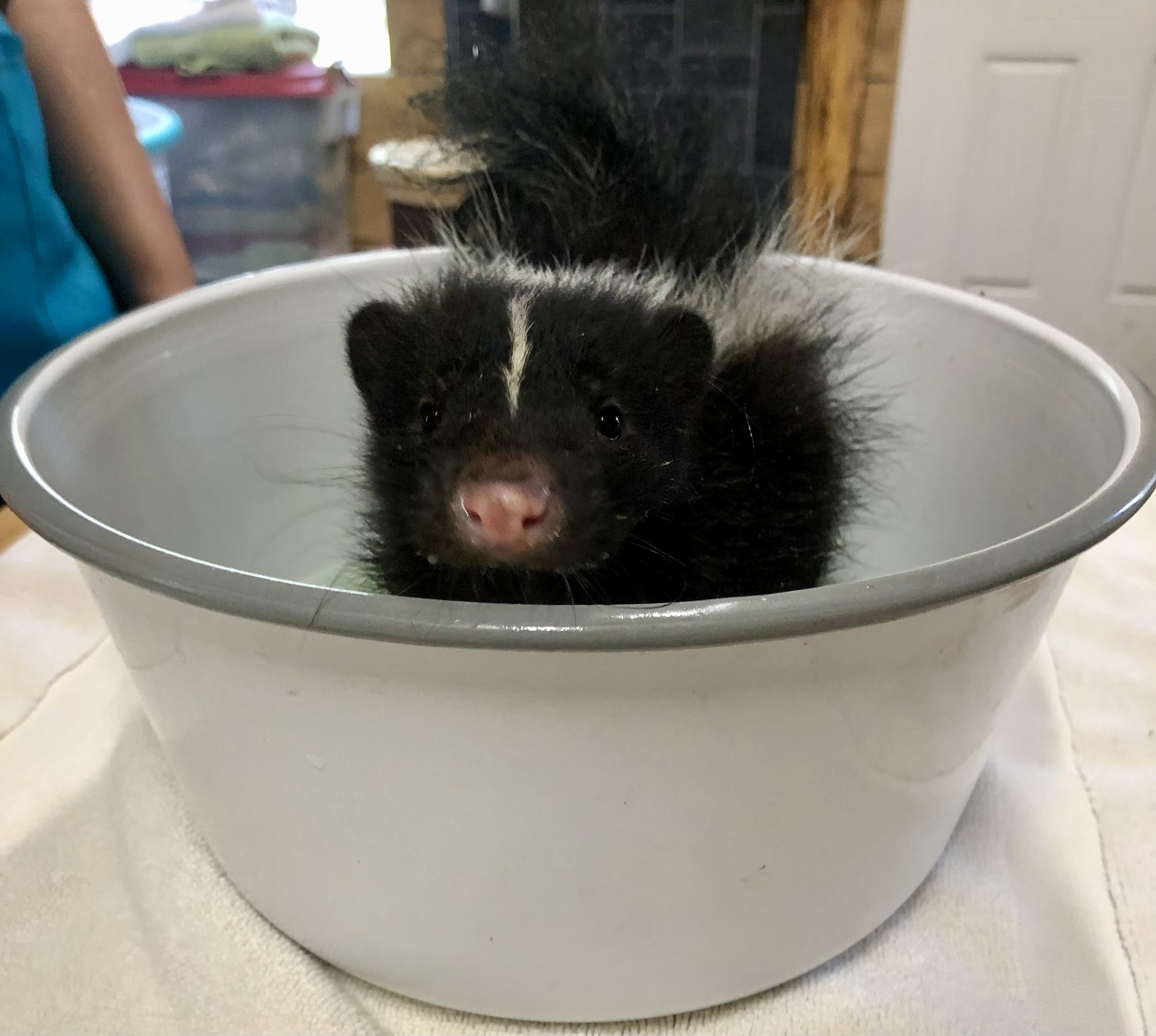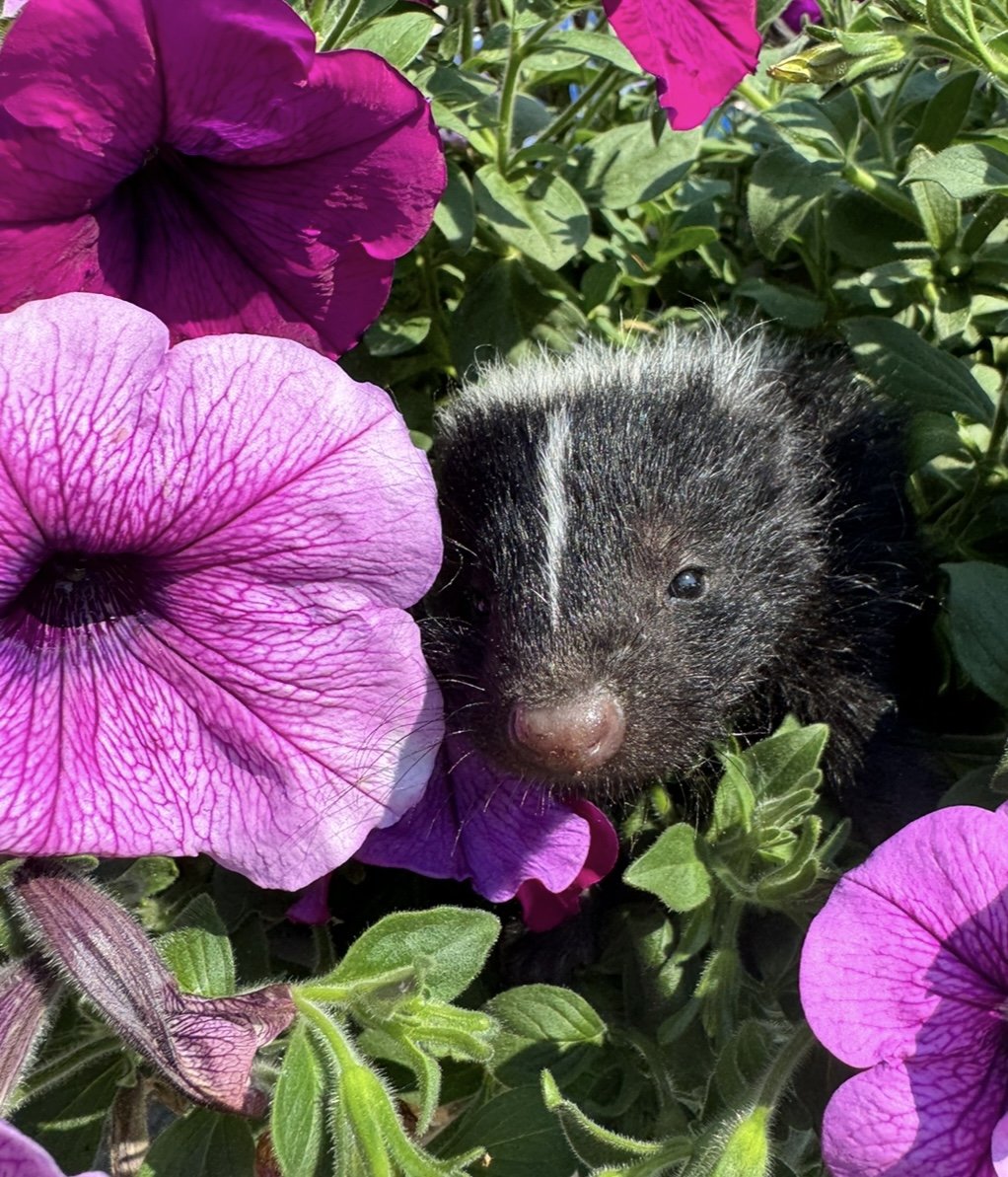
Critterville Wildlife is a 501c3 non-profit organization.
We’re dedicated to the rescue, care, rehabilitation and release of native Maine wildlife species. We do this in an ethical manner and respect for the environment. We also provide education to encourage sustainable relationships between humans and neighboring wildlife.
CRITTERVILLE WILDLIFE REHABILITATION CENTER
Please help us continue our move to our permanent location in Bucksport. We still need to move our clinic building as well as additional outdoor pre-release enclosures for larger animals.
BUCKSPORT, Maine (WABI) - When it comes to rescuing wildlife, transporters and licensed rehabbers say not to believe everything you read online.
“They think it needs food. They think it needs water, and they get all kinds of advice because they don’t necessarily go on Google. They go on Facebook,” said wildlife transport volunteer, Doug Alley.
While it may feel right to step-in and take action when you see injured wildlife, it’s best to observe and report to a state-licensed rehabber before doing anything.
“Give us a call, send us a picture and we can determine if that animal does need to come into care,” advised Susan Wotton, Director of Critterville Wildlife Rehabilitation Center.
Once you are in contact with a rehabber, they’ll often advise against giving any food or water.
“At that point if you introduce food and the animal is not warm, not hydrated, its body systems are not functioning properly, and food will unfortunately kill it. We ask you not to feed or give them water, not because we want all the fun of feeding these little baby animals, but because it can severely hurt them. Small animals can aspirate very easily,” explained Wotton.
In many cases, mom isn’t very far away, and rehabbers will be able to tell based on pictures and videos.
“White-tailed deer and red foxes like to leave their babies near human beings. Foxes particularly, and probably deer also, because coyotes don’t like to be near people and so coyotes are big predators of both fawns and foxes. So, if there is a fawn near your house or a fox den near your house, that’s mom’s choice,” stated Alley.
“If there is not confirmation of the deceased mom, there are ways that we can tell by seeing the picture of the animal that that animal has been without the mom for a certain number of days. Animals get flystrike which is where flies will come and lay their eggs on them. Their eyes get sunken when they’re dehydrated. If it’s a fawn, their ears start to curl. They could have ants,” Wotton said.
When birds fledge and leave the nest, they may look like they need help when they don’t.
Bunnies should be left alone as well.
“Those you should just leave alone same thing with baby bunnies. If you see a baby bunny, bunnies are precocious which means they’re born with their eyes open ready to go,” Wotton added.
And if a rehabber does instruct you to touch an animal, always wear gloves as rabies is a serious matter.
More information on the matter including a statewide list of licensed rehabbers can be found here.
Copyright 2025 WABI. All rights reserved.
We’re dedicated to saving the lives of native Maine species.
Located in Maine on 120 acres we serve the downeast area and northern counties.
We accept all mammals including rabies vector species,
We hold a federal license to care for Whitetail Fawns.
Whitetail fawn
Baby gray squirrel
Juvenile raccoon
Baby skunk
Weekly Newsletter #2
This otherwise healthy little skunk got a drink lid stuck around her neck Luckily she could still eat and drink but there was the possibility she could get caught on something and choke or it would get tighter as she grew
She was caught in a Havaheart trap and on site the plastic ring was removed
She got a quick exam and a rabies vaccine and was sent on her way
Weekly Newsletter #1
Ronald, as he was called for the first few weeks, came in after being hit by a car. He had a head injury and is still not able to be released. HE also came in pregnant!! A little porcupette was soon born! So Ronald is now Ronalda! Since the birth of her baby she’s taken in 3 other babies as her own and is a wonderful mama to them.
Ronald was quite a mess when he was brought in. He had burrs, leaves and berries stuck to his quills. He cleaned himself up quite a bit the first night.
Porcupettes are the cutest little creatures!
A Day in the Life—
of a Rehabber
What is a baby porcupine called?? A Porcupette!
There's nothing like a juvenile Gray Squirrel to soften your heart a little.
Gently feeding a hummingbird it's special mixture.
Growing groundhogs love a great salad!
Mmmmmm scrambled!
Some of our youngest raccoons this year.
I'd love to come out and play - or maybe have a bottle of my specially made formula??
A young red squirrel enjoying a snack.
A wonderful donation to encourage our raccoons to exercise!
This little flying squirrel is loving his healthy snack.
Critterville's resident groundhog! A hand raised orphan who was released but didn't leave.
A very tiny, fragile visitor -- A young hummingbird.
One of our juvenile groundhogs enjoying an ear of corn.
There's nothing like a good bed of quills to snooze on.
A young porcupine, called a porcupette enjoying an apple.
Opossum Artwork
Original Opossum Art #1
Handpainted by Tickles our Virginia Opossum on canvas in a wood like frame
$40 free shipping
Original Opossum Art #4
Handpainted by Tickles our Virginia Opossum on canvas in a wood like frame
$40 free shipping
Original Opossum Art #2
Handpainted by Tickles our Virginia Opossum on canvas in a wood like frame
$40 free shipping
Original Opossum Art #3
Handpainted by Tickles our Virginia Opossum on canvas in a wood like frame
$40 free shipping
give today
⁎
give today ⁎
Help Us Help Them
We operate SOLELY on donations.
We receive NO funding from the state.
You can help support Critterville Wildlife in the following ways;
volunteering
dropping off supplies
transporting animals
fundraising
visiting our wish lists
or making monetary donations
We’ve dedicated our lives to saving the lives of these beautiful
creatures and would
LOVE to have you be part of our family!
I found injured/abandoned wildlife! What do I do?
As a general rule, you should always watch wild animals from a distance and never feed or touch them. If you come across wildlife you think might be orphaned, sick, or injured, here’s what you can do:
If you encounter wildlife anywhere in the Maine outdoors, remember this motto: If you care, leave them there. Wild animals and birds do not make good pets, and it’s against the law to possess them without the proper state and federal permits.
Picking up young wildlife might seem like the right thing to do but in most cases wildlife has a much better chance at survival when not disrupted by humans. Direct contact with wildlife can also expose you (or your family and pets) to a variety of diseases, and it can lead to an animal being euthanized in order to test for rabies.
Contact Us
For wildlife in immediate need, please call
(845) 549-2407
Follow us on social

















